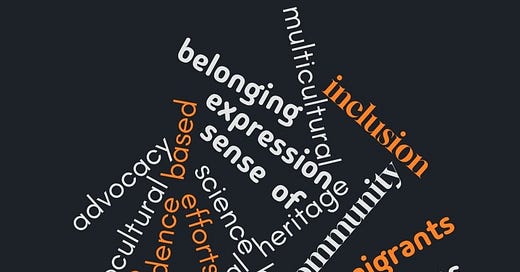Welcome to the NORTHERN HERITAGE Snapshot #3! A series of short, quick dives into heritage topics in Prince George and the North.
A memo was sent out Jan. 29 from the US Federal Office of Personnel Management to departments and agencies announcing new restrictions on the use of vocabulary. Text on their websites, printed materials and in their approval processes for grants, research papers and contracts will be scanned and automatically flagged for review when offending words are found. Too many wrong words and you’re out.
In February the New York Times reported on a growing list of more than 250 words and phrases reportedly no longer considered acceptable by the Trump administration. Apparently agencies, universities, school departments and NGOs are issuing their own guidance on words to be eliminated from public use — a form of proactive self-censorship.
I went through the list of “banned words” to see if any would apply to NORTHERN HERITAGE…. All I can say is that I’m glad I’m not writing in America! “Advocacy for cultural heritage to promote community sense of belonging, evidence-based study of immigrant and indigenous identity and inclusion in a multicultural society?”
NORTHERN HERITAGE would be in big trouble!
(Don’t even get me started on elderly women and stereotypes…)
It’s very tempting to just laugh at this ludicrousness and to feel safe at a distance, but recent events have shown us that we are not immune nor are we safe. This is an overt attack on the study and use of knowledge about the past to improve our present and plan for the future. In particular, it places communities, all of us, directly in the line of fire.
We are not Americans but many of us have intimate and enduring ties to American friends, family and colleagues. So it’s painful to think that I can sit here at my computer freely blurting out all these “banned words” while my associates in the US need to think carefully, edit and rewrite their heritage project proposals and reports, university course syllabi and even their CVs. The wrong vocabulary could lose them a much needed grant, a teaching position and their academic freedom.
I often dwell on the murky question of how the issues we discuss here at NORTHERN HERITAGE, such as culture, heritage, history and planning, can play a part in what Charlie Angus calls The Resistance. This is not a political Substack, but today in Canada with the world we live in, it’s difficult to keep politics at bay. We will continue to discuss the “murky question” and look for answers which I am sure lie in the unacceptable vocabulary of community, history, sense of belonging, identity and cultural heritage.





